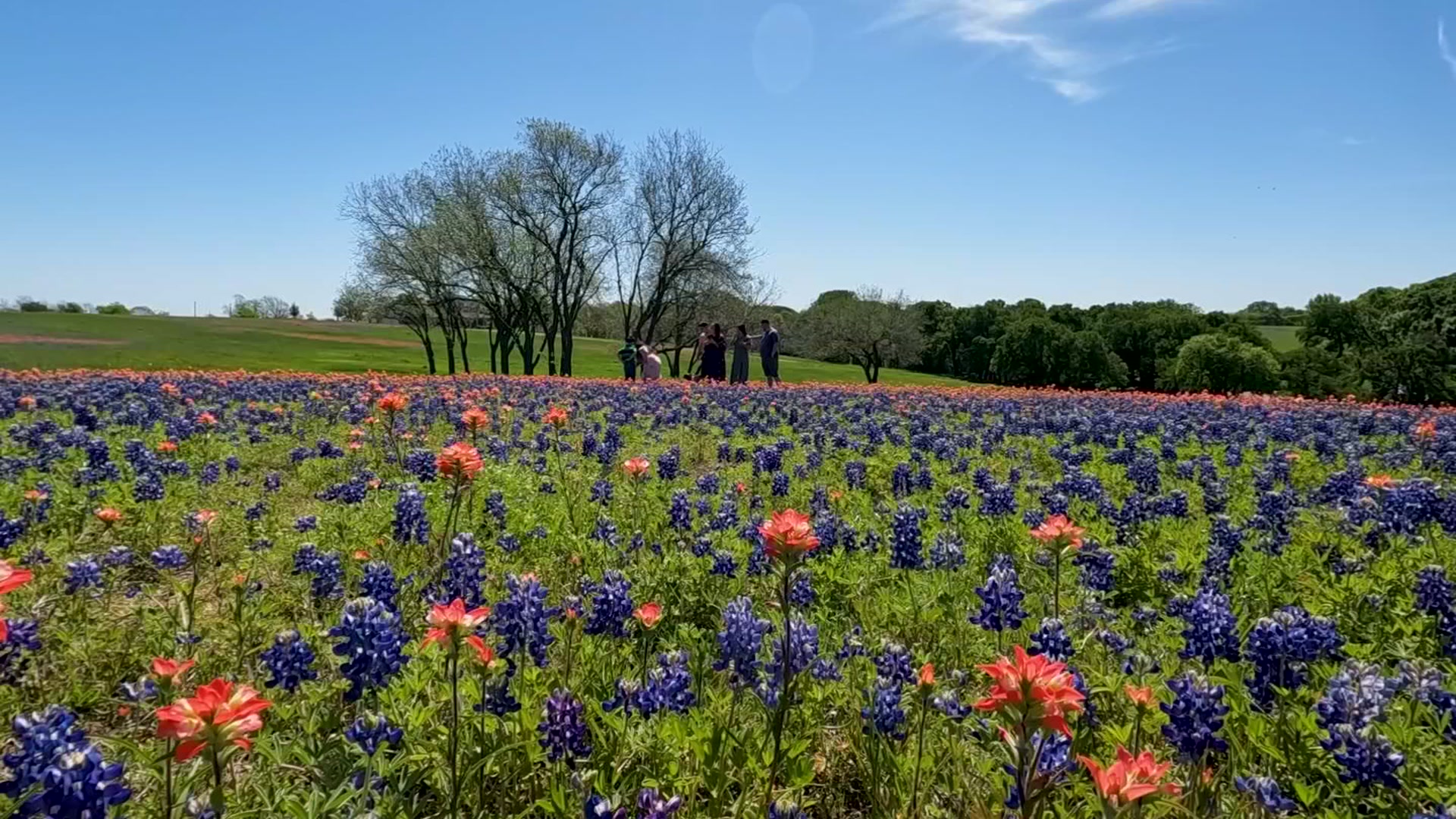A professor at Baylor College of Medicine in Houston who played a central role in the work to get the Moderna COVID-19 vaccine cautions against talk of half doses.
Dr. Hana El Sahly, an associate professor of molecular virology and microbiology, is one of three lead investigators in the late stages of the trial. The trial showed the vaccine is 95% effective in preventing disease.

"It was exciting but also, I always say, I wish it was otherwise. I wish we didn't have to do all this exciting groundbreaking work in exchange of not having this pandemic," El Sahly said.
As the vaccine she researched from inception to writing the research paper now gets to the public and demand outweighs supply, there's a suggestion cutting the dose in half would get the shots to the public faster.
"So this is a modeling scheme that we cannot argue with but from a standpoint of efficacy, and what in the immune response is actually the protective part, it may be wiser to stick to the 100 microgram," El Sahly told NBC5.
The dosage used in the trial was 100 micrograms and "is the one we can predict an effect with it on the disease," El Sahly said. She also says "there are always trade-offs. Some modeling data will suggest that if you protect even less than 95% yet spread the good to more people, at the population level, the effect may be bigger."
Local
The latest news from around North Texas.
El Sahly says with forthcoming data, the discussion about using half a dose "will probably take a different turn."
In a statement released this week, the Food and Drug Administration said it is following discussions about reducing doses, extending the length of time between them, using half doses or mixing and matching vaccines to increase immunizations.
"These are all reasonable questions to consider and evaluate in clinical trials," the statement said. "However, at this time, suggesting changes to the FDA-authorized dosing or schedules of these vaccines is premature and not rooted solidly in the available evidence. Without appropriate data supporting such changes in vaccine administration, we run a significant risk of placing public health at risk, undermining the historic vaccination efforts to protect the population from COVID-19. Saying it's too early to suggest changes to dosing or schedules - and doing so without appropriate data could put public health at risk."
The COVID-19 vaccines from Moderna and Pfizer are now being used in North Texas, across the state and country.
At this point, the Texas Department of State Health Services has authorized vaccines for Phase 1A. Front-line health care workers, residents and staff members of nursing homes and other long-term care facilities and school nurses are among those who are eligible. Phase 1B is also in effect. People 65 years of age and older and people aged 16 and older with at least one chronic medical condition that puts them at increased risk for severe illness from the virus that causes COVID-19 are also now eligible for the vaccine.
Vaccines are in limited supply with North Texans confused about how to get one and waiting in long lines hoping there's a shot available to them.
"More product and more venues to give the product in a streamlined way," is Dr. El Sahly's assessment of what's needed to speed up immunization.
"A lot of us were taken by surprise by the need to roll this out rather fast. Although, it was recommended states have a plan in place, but the speed with which everything got approved, the fact that it hit around the holiday, exactly around the holiday time, probably the planning was not as tight as it could've been. All of these sort of resulted, and, of course, the issue of demand in the beginning outweighing the supply, all of these sort of came together to make it seem a bit chaotic but I am optimistic we will get there."
As Texans await their turn, El Sahly, who will soon get her second dose of vaccine, advises everyone to hang in there. "Use your protective equipment. Masks, distancing and hand washing do work. Check the DSHS website for Texas frequently and identify a spot close to you to go get vaccine. If it's not happening this week, it will likely happen next week. So, just hang in there," she said.
Dr. El Sahly's work with vaccine-maker Moderna and other trials evaluating COVID-19 vaccines forced her to recuse herself as chair of the FDA's Vaccines and Related Biological Products Advisory Committee as the panel reviewed the Moderna vaccine back in October.
Her research will continue for some time.
"We are right now following our Moderna volunteers in the clinical trial. They are with us on the study for up to two years. So, we will continue to gather information on the durability of the response which is the key question that remains unanswered. And, we are also part of other Operation Warp Speed clinical trials. So, we will be testing additional vaccines against COIVD-19," she said.



